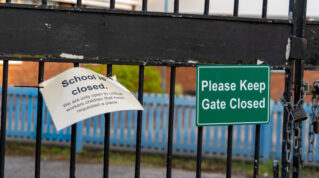Year 1 pupils have fallen furthest behind in reading as a result of the Covid-19 pandemic, according to new research.
Analysis by the National Foundation for Educational Research found progress stalled for all primary year groups during the pandemic, but the negative impact on reading was greatest among pupils in key stage 1.
Year 1 pupils also showed less signs of recovery between the spring and summer of 2021 than those in other years. The cohort that was in year 1 last year has never experienced a normal year at school.

NFER analysed seven sources of data, including Department for Education research on lost learning and the 2021 national reference test.
The report said the impact of Covid on the development of early literacy skills was “of particular concern”.
Research published last year by the Education Endowment Foundation found the proportion of year 1 children who struggled to engage with reading assessments increased from 2.6 per cent in pre-pandemic 2019 to 5 per cent last summer.
Researchers also said they would expect to see around 16 per cent of pupils achieving a standardised score of 85 or less, but last summer, 27 per cent of year 1 pupils were in this category.
Despite “some overall signs of recovery”, by last summer there remained a “higher than expected” proportion of low-scoring pupils in year 1 reading and maths, and for year 2 reading.
Fears for future of the youngest children
“These are the children who are at risk of future educational underachievement. This evidence emphasises the urgency of addressing this issue through focused input and adequate resourcing before these children become struggling or reluctant readers.”
At key stage 2, the impact was greater on maths than on reading. These patterns “give some indication as to where schools may need to focus additional time and resource in order to address particular gaps”.
Carole Willis, the NFER’s chief executive, said it was “of real concern that the reading development of the youngest pupils in primary schools has been particularly affected during the pandemic”.
She said the evidence “suggests that interventions and resources would be best targeted at developing the reading skills in key stage 1 and at identifying areas of the key stage 2 maths curriculum with which pupils are struggling”.
The report also warned the disadvantaged gap had widened during the pandemic, with the scale of the gap a “clear reminder that some pupils were more vulnerable to the impacts of the pandemic”.
“It also reinforces the need for policy-makers to renew their efforts to address this long-standing feature of the education system and underlines the importance of prioritising this group in the education recovery spending and activity.”
Paul Whiteman, general secretary of the NAHT school leaders’ union, said the report showed the “scale of the challenge in helping children recover lost learning during the pandemic”.
He said schools were “still suffering from Covid disruption”, with staff absence impeding their ability to “concentrate on the excellent recovery work they are doing”.
“Government must be prepared to give schools additional resources where they are needed.”
















Your thoughts